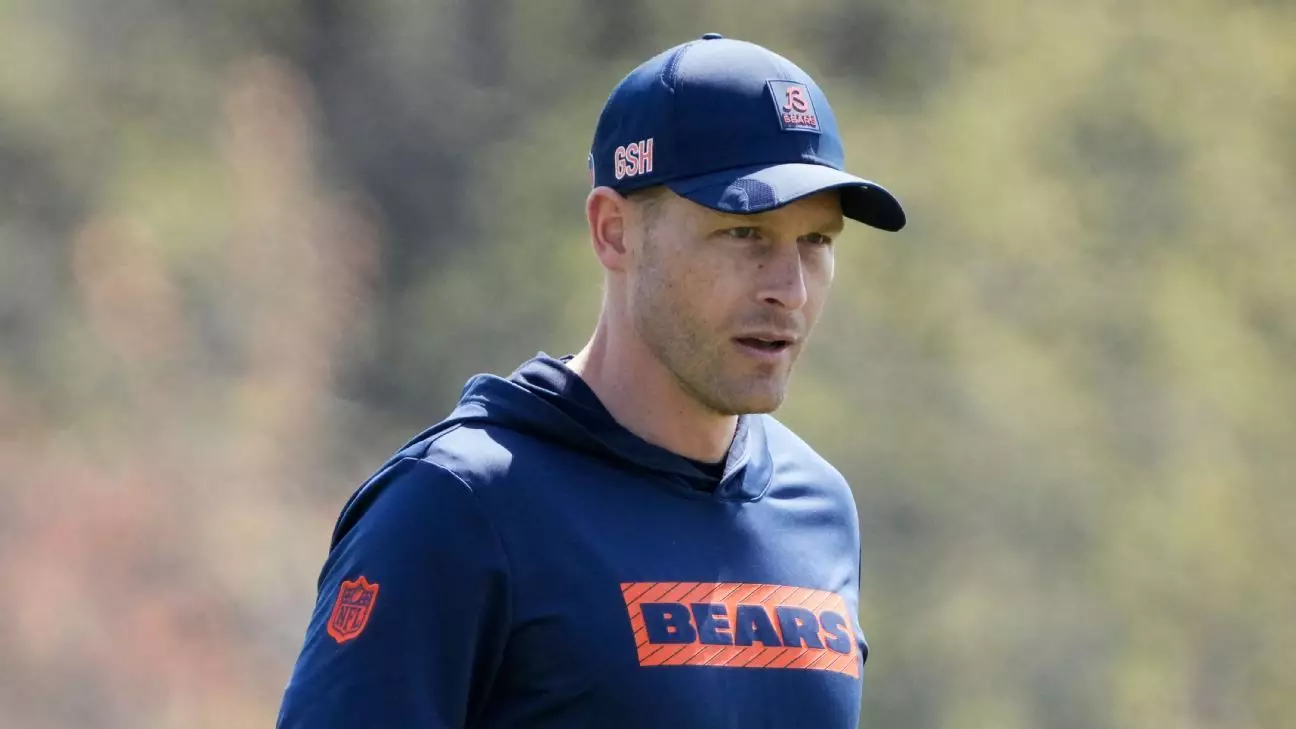Transforming a Legacy: The New Era for Chicago Bears Quarterback Development
When you think about the Chicago Bears, it’s almost impossible not to consider their long-standing struggle with developing successful quarterbacks. For years, this has been more than just a minor hiccup; it’s a significant mark on their storied history. Now, with the arrival of new head coach Ben Johnson, there’s a renewed sense of hope in Lake Forest. People are buzzing with the possibility that what once were obstacles might now be opportunities. This journey isn’t just about rebuilding a team; it’s about reigniting hope and redefining what it means to be a Chicago Bears quarterback.
I recently dove into Seth Wickersham’s insightful biography, “American Kings: A Biography of the Quarterback.” It sheds light on these ongoing quarterback challenges and puts them back in the spotlight. One story that stands out is that of Caleb Williams, the top pick in the draft, who had concerns about joining a team known more for its quarterback woes than successes. Both Caleb and his father, Carl Williams, voiced their apprehensions. The narrative here is clear: trust and high expectations are crucial in sports, yet they’ve been missing in Chicago’s past.
Key Takeaways
- The Chicago Bears have historically struggled with quarterback development.
- New head coach Ben Johnson brings hope for transformation.
- Trust and expectations are vital for success in professional sports.
- A fresh approach could redefine the narrative around the Bears’ quarterbacks.
Redefining Expectations
Coach Johnson came into his role with an unfazed attitude toward past failures. Instead of shying away from them, he sees them as an opportunity to reshape the Bears’ story. “I love it,” he said about the historical skepticism, showing his dedication to changing the franchise’s perception. His approach is all about crafting new stories—stories that uplift potential rather than let it drown under previous disappointments. This kind of visionary thinking could very well be what turns the Chicago Bears into a team known for brilliance instead of blunders.
In reaching out to Caleb Williams, Johnson emphasized moving beyond fears rooted in past missteps. Their relationship is pivotal; building trust takes time but is essential for success. Johnson isn’t dwelling on past failures; he’s focused on fostering growth and success through mutual support. His determination to develop a positive dynamic with Williams could pave the way for enduring success—not just for the quarterback but for the entire organization.
The Dynamics of Accountability
Seth Wickersham’s book also highlights an important issue: the disconnect between Caleb Williams and former offensive coordinator Shane Waldron. During a challenging rookie season, Williams expressed frustration—a cry for accountability and structured coaching that went unmet. For any quarterback, especially one seen as a generational talent, clear guidance and feedback are critical. This serves as an important lesson for Coach Johnson: fostering open communication can make all the difference in nurturing talent.
Though Williams hasn’t publicly commented since these revelations surfaced, his recent actions suggest a player eager to grow both personally and professionally. His hunger for success should resonate deeply with Johnson’s coaching philosophy. If Johnson can engage Williams effectively in an accountable relationship, we could witness a significant shift in not just quarterback performance but also within the entire organization.

Hope on the Horizon
With Coach Johnson leading the charge, there’s a palpable shift from merely surviving to truly thriving within the Chicago Bears organization. Fans who’ve endured subpar performances have every reason to feel both anxious and excited about what’s to come. Johnson’s impressive tenure with the Detroit Lions showcased his offensive skills, making him uniquely poised to spearhead this revival. His efforts to build trust with Williams and establish a structured development process could be exactly what changes the Bears’ fate.
In such a competitive NFL landscape, talent alone isn’t enough; success requires teamwork that harmonizes coaches’ strategies with players’ skills. Johnson’s mission to tighten bonds and foster synergy might just spell the difference between failure and triumph. The Chicago Bears could be on the verge of turning a proverbial corner, ushering in renewed hope and a fresh chapter in their storied history. With everyone watching closely, there’s no denying that stakes have never been higher.
Final Thoughts
This potential transformation under Coach Ben Johnson isn’t just about changing playbooks or strategies; it’s about rewriting narratives and redefining legacies. The journey ahead won’t be easy—no revival worth pursuing ever is—but it’s fueled by optimism and determination. For fans longing for success, this new era offers a sense of belonging and pride that has been missing for far too long. As we look forward to what lies ahead for the Chicago Bears, one can’t help but feel that this is more than just another season; it’s an opportunity to create something truly remarkable.
Chicago Bears
quarterback development
Ben Johnson
Caleb Williams


Leave a Reply